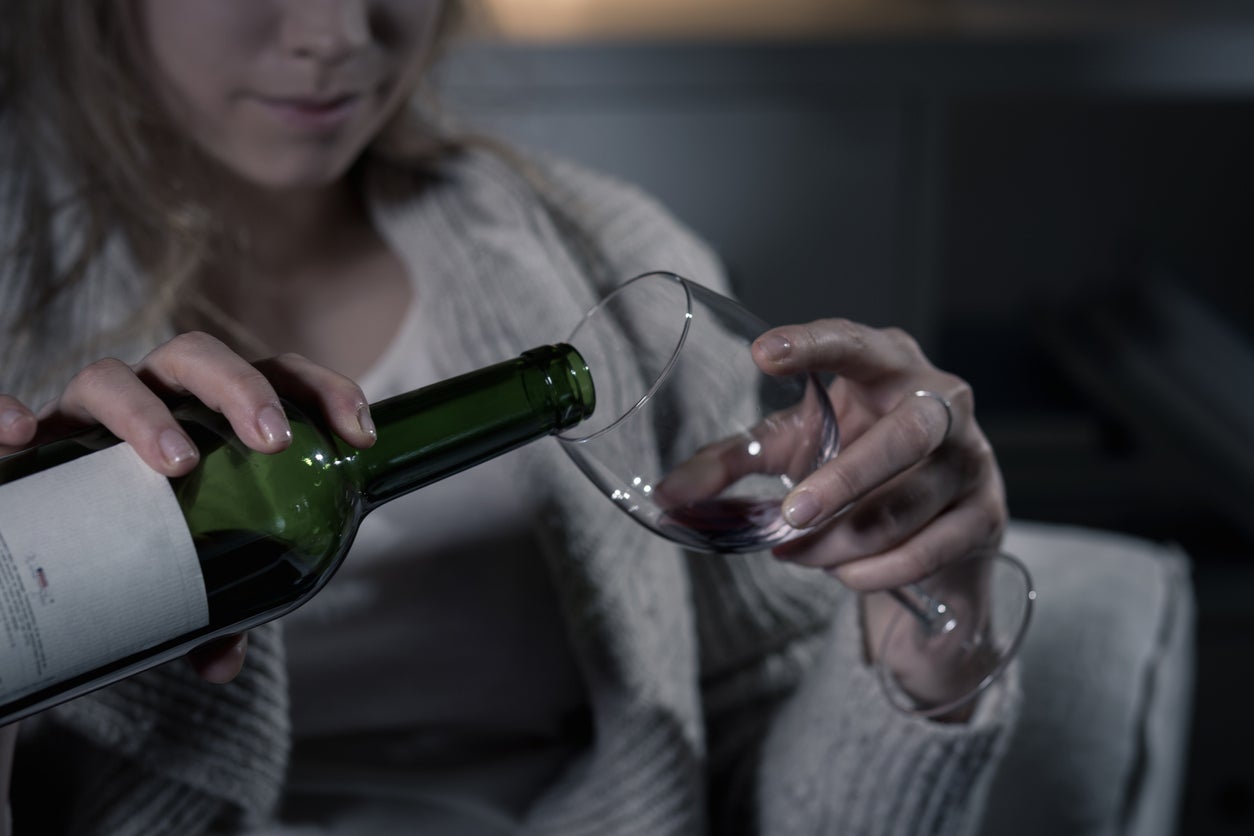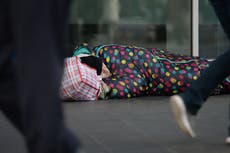Dry January will be especially difficult this year, thanks to coronavirus
Alcohol usage for many has increased during the pandemic but funding for treatment is declining. Those suffering with addiction need professional help, not a DIY attempt at abstinence, writes Ian Hamilton


If retail sales of alcohol are a barometer of how much we’re consuming, then 2020 was a very wet year. Backing this indicator up are a number of surveys carried out during the pandemic that revealed our drinking habits. Three distinct groups emerged, the abstainers, the moderates and then the heavy drinkers.
The latter group, who were already drinking larger amounts prior to Covid, reported drinking more during the pandemic. In contrast, those drinking at low levels further reduced their intake during the year, meaning they had a dry pandemic.
Now a regular fixture, Dry January is the annual campaign promoted by Alcohol Change UK that challenges people to go without alcohol for a month. Four million of us took up the challenge last year, no doubt keen to redeem ourselves following the excesses of Christmas.
As a nation we don’t talk about alcohol enough, particularly the harm it causes, so in that respect Dry January prompts us to think about our individual relationship with this drug. Most of us are adept at fooling ourselves as to how much we rely on it, to relax, socialise and cope with thoughts and feelings that make us uncomfortable. Alcohol is a sneaky chemical, unlike other drugs it takes years for problems like dependency to develop, making it really difficult to self-assess a problem.
What is clear is that in 2020 more of us have been self-medicating with alcohol than usual; changing this will require some honest and potentially uncomfortable reflection.
The good news is that signing up to challenges like Dry January do help many people recalibrate their relationship with alcohol. This seems to benefit those who are drinking at less harmful levels – helped no doubt by Covid-19 restrictions, which reduce the opportunity to socialise or go to the pub. On the other hand, successive governments, with industry lobbying, have made it easier and cheaper to consume at home. While this might reduce the risk of infection, it significantly increases the potential of drinking at harmful levels. Home-poured measures are known to be greater than those served in a retail environment.
Alcohol Change makes clear the challenge shouldn’t be attempted by those who are potentially physically and psychologically dependent on alcohol. For these people, stopping drinking abruptly has the potential to be fatal or very uncomfortable, they really need professional supervision and support rather than a DIY attempt at abstinence.
With more than half a million people estimated to be dependent on alcohol in England alone, this is clearly not an insignificant issue. Not only has coronavirus played a part in increasing their alcohol consumption, it has severely impacted their options for help. Even without a pandemic, more than 80 per cent of this group won’t be receiving any help or support. For those who have accessed treatment in the past year, their experiences will have been radically different. Most specialist treatment has been delivered remotely at a point when human contact is critical, counselling via Zoom is a poor substitute for in-person one-to-one sessions.
Perversely, as problems with alcohol increase year on year, funding for specialist services is going in the opposite direction at an alarming rate. As with drug treatment, the cuts to services are greatest in the communities with the greatest need. GP Tudor Hart was the first to recognise this phenomenon back in the 1970s, referring to it as the inverse care law, where those with the greatest need get the least in the way of services.
Alcohol dependency is not a priority for the government, despite the growing numbers of people experiencing problems. At a national level, we have somehow ended up catering well for those with less serious problems due to alcohol, while virtually abandoning those with the most severe needs. In this sense, Dry January inadvertently adds to the menu of choice those with the least need have, and leaves those with the greatest need to fend for themselves.
It’s no accident that we are in this paradoxical situation. In the same way, it’s an inconvenient truth to admit to a problem with alcohol, and our government is in a state of denial about their role in this. They have failed to stand up to an industry that puts its commercial interest ahead of their most loyal and largest consumers, those dependent on their products.
The industry is happy to support campaigns like Dry January as it diverts our collective attention away from those who have the greatest need and little hope of help. Our government not only colludes with the alcohol industry in this but compounds the issue by failing to adequately fund specialist treatment. If only there were a vaccine for collusion and denial.
Join our commenting forum
Join thought-provoking conversations, follow other Independent readers and see their replies
Comments



Bookmark popover
Removed from bookmarks